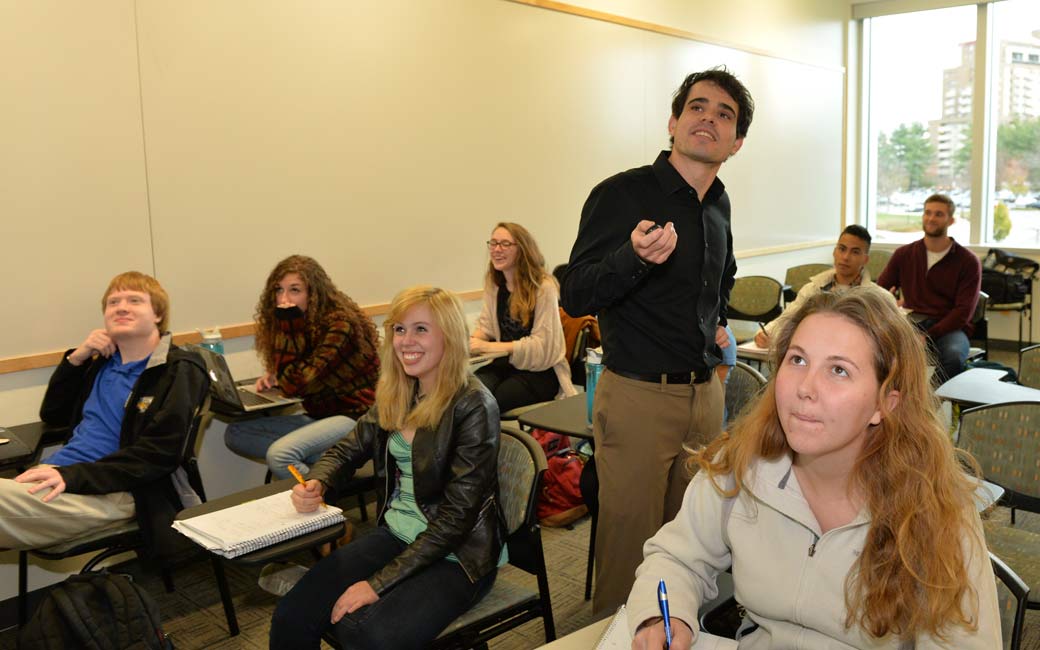Exploring the origins of moral behavior
Associate professor Makmiller Pedroso explores the philosophy of science.

If you are looking for Makmiller Pedroso, you will find him at the intersection of philosophy and science. An associate professor in the Department of Philosophy and Religious Studies, Pedroso’s area of inquiry is the philosophy of science. Big questions. Elusive answers. “The philosophy of science looks at issues that currently lack a solid empirical basis. We are on the fringe of science.”
He studies conceptual issues of evolutionary biology and biological systematics. For example, why did single-celled organisms band together to create higher level multi-celled organisms? Humans tend to take for granted the collaboration of the tiny organic wonders that make us who we are.
But scientists and philosophers take nothing for granted. At the crossroads of these two disciplines, big questions loom down the road. Pedroso tackles a huge one in his special topics course, “What Makes Us Moral?” The course examines evolutionary explanations of the origins of moral behavior in humans.
“Students must learn to articulate and support their own positions.”
Pedroso also teaches a course in environmental ethics that examines human obligations to the non-human environment and how humans deal (or should deal) with shared resources. “There are many points of contact between ethics and science. I offer both sides of an argument. In my class, I present authors with opposing views. Students must learn to articulate and support their own positions.”
The Department of Philosophy and Religious Studies is small – a little like a friendly village. Pedroso and his colleagues are approachable and supportive. Students often find that philosophy professors are willing to impart career guidance along with academics. Here the path to success is paved with small favors as well as big questions.